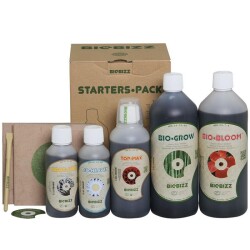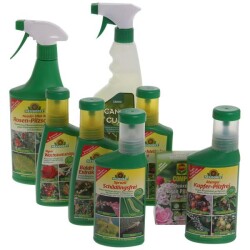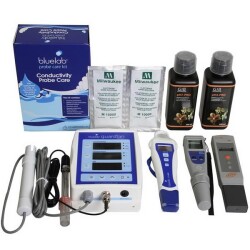plant care for long lasting pleasure and a good harvest
The joy about beautiful plants in house and garden is great. Long faces, on the other hand, occur when the plant does not grow properly, gets yellow leaves or has a low flowering rate. In order for you to enjoy your plants for a long time, there are a few things you need to keep in mind when grooming your plants.Plants need light, water, carbon dioxide and heat for their development. Nutrients also play a role in the soil, mainly nitrogen, phosphorus and potassium. The plant absorbs these nutrients through its roots. For optimum plant care, the selection of the plant substrate or the improvement of the soil through fertilisation is crucial.
Houseplants receive new nutrients through regular transplanting into fresh substrates and appropriate fertilization. In the garden, too, nutrients must be supplied to the soil. Through cultivation and harvesting, raw materials are extracted that are missing in the natural decay process and can no longer contribute to the nutrient balance. Various fertilizers are available to compensate for this nutrient deficiency and to stimulate healthy plant growth.
Even optimal plant care cannot prevent your plants from being infested by pests or diseases. Among the most common pests are aphids and scale insects, spider mites and harmful flies. If the plant is infested, symptoms appear on leaves and flowers. Quick action is needed to prevent the pests from spreading and to prevent permanent damage to the plant. In nature, plants are also threatened by snails and rodents such as voles. A single snail can empty your salad bed in one night. Fungal diseases also frequently occur in the garden, with the best known being powdery mildew and downy mildew. To prevent and control diseases and pests on your plants, we offer you a variety of products.
Regular pruning of shrubs and ornamental plants also contributes to plant care. Pruning stimulates plant growth and promotes flowering.






